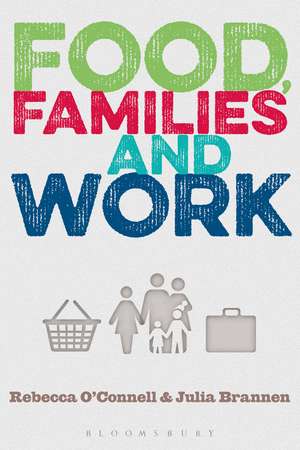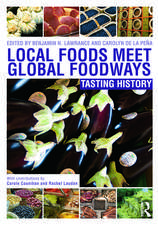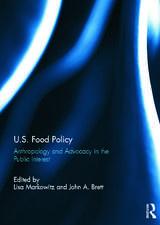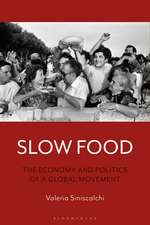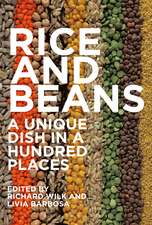Food, Families and Work
Autor Rebecca O'Connell, Julia Brannenen Limba Engleză Paperback – 23 mar 2016
Preț: 198.12 lei
Preț vechi: 230.35 lei
-14% Nou
Puncte Express: 297
Preț estimativ în valută:
37.91€ • 39.69$ • 31.37£
37.91€ • 39.69$ • 31.37£
Carte disponibilă
Livrare economică 17-31 martie
Preluare comenzi: 021 569.72.76
Specificații
ISBN-13: 9780857855084
ISBN-10: 0857855085
Pagini: 200
Ilustrații: 9 bw illus
Dimensiuni: 156 x 234 x 13 mm
Greutate: 0.36 kg
Editura: Bloomsbury Publishing
Colecția Bloomsbury Academic
Locul publicării:London, United Kingdom
ISBN-10: 0857855085
Pagini: 200
Ilustrații: 9 bw illus
Dimensiuni: 156 x 234 x 13 mm
Greutate: 0.36 kg
Editura: Bloomsbury Publishing
Colecția Bloomsbury Academic
Locul publicării:London, United Kingdom
Caracteristici
Offers expert analysis of the global context of food and social practices, covering issues relating to gender, family income and the roles played by different members of the family
Notă biografică
Rebecca O'Connell is a Senior Research Officer at the Thomas Coram Research Unit, IOE, UCL's Faculty of Education and Society, University College London, UK. She is co-convenor of the British Sociological Association Food Study Group. Julia Brannen is Professor of Sociology of the Family at the Thomas Coram Research Unit, IOE, UCL's Faculty of Education and Society, University College London, UK and Adjunct Professor at the University of Bergen, Norway.
Cuprins
Acknowledgments1. Introduction2. Is parental employment linked to children's diets? The survey evidence3. Who does the foodwork in working families?4. When do working families eat together? Families, meals and meal times5. How much power do children wield over what they eat?6. How does children's food play out across the different spaces of their lives?7. Changing families, changing food: how do children's diets change over time?8. In conclusionAppendixReferencesIndex
Recenzii
Brannen and O'Connell have deftly provided a look at how families feed their children. The authors employ an impressive mixed-methods, longitudinal approach that brings refreshing perspective to a global debate often fraught with dramatic pronouncements regarding childhood obesity and the decline of the family meal. A systematic appraisal of dynamic influences including shifting parental employment, domestic foodwork roles, child development, and temporal considerations helps advance an evolving conversation about the family table. The authors skilfully weave rich, evocative case studies into this important contribution to the literature.
This book achieves so much, so skilfully; at its heart is a robust analysis of data relating to mothers, fathers and children, drawing on quantitative and qualitative research methods and considering the complex issues of food, families and work over time. It will be of interest to a variety of scholars.
By situating children's food in the context of the everyday lives of working families and by considering how children as social agents negotiate their food choices as they move through their lives at home, childcare, and school, O'Connell and Brannen's important contribution illuminates the complexities of food and family life and the dynamic, negotiated practice of children's food in contemporary England.
This book achieves so much, so skilfully; at its heart is a robust analysis of data relating to mothers, fathers and children, drawing on quantitative and qualitative research methods and considering the complex issues of food, families and work over time. It will be of interest to a variety of scholars.
By situating children's food in the context of the everyday lives of working families and by considering how children as social agents negotiate their food choices as they move through their lives at home, childcare, and school, O'Connell and Brannen's important contribution illuminates the complexities of food and family life and the dynamic, negotiated practice of children's food in contemporary England.
